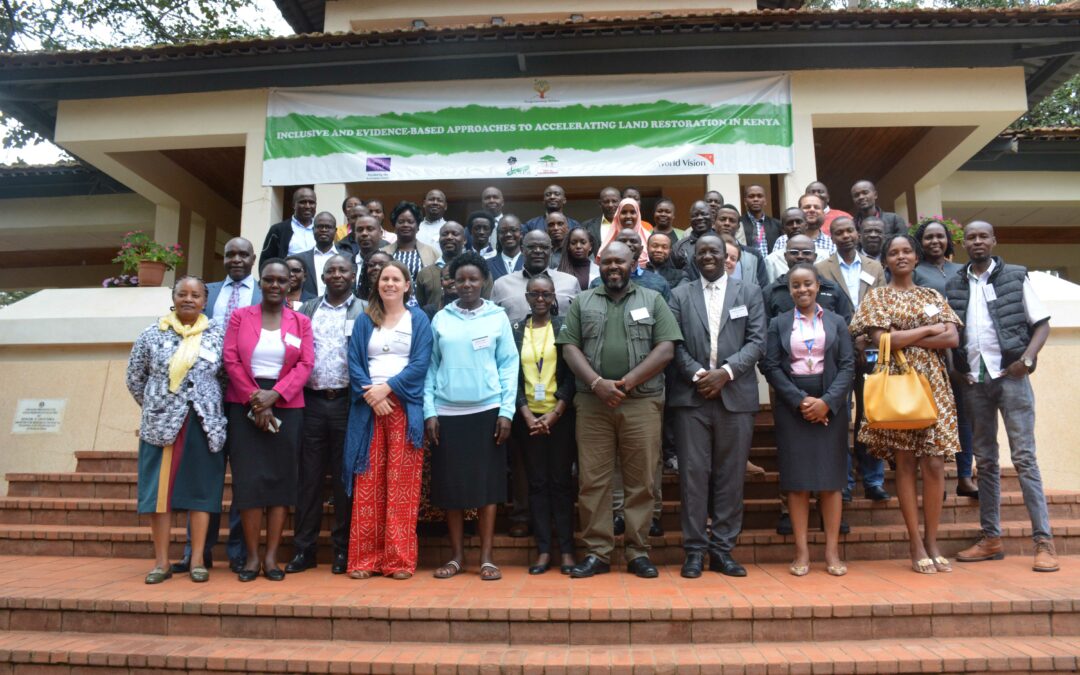By Marion Aluoch
The Regreening Africa program has highlighted the significance of partnerships and collaboration in restoring degraded land and improving food security, climate resilience and economic empowerment. On November 22-23, 2022, the Program in Kenya held a Stakeholder Approach to Risk Informed and Evidence-based Decision Making (SHARED) workshop where stakeholders from national and county governments, community-based organizations, faith-based organizations and local communities gathered to assess the program’s progress, discuss future strategies and policies, and identify resources for continued restoration efforts.
“The Regreening Africa program set an ambitious target for Kenya, with the overall goal of reversing land degradation by scaling restoration practices by small holder farmers. Through this program we are also improving food security, resilience to climate change, and economic empowerment,” said Brian Wambua, the Project Manager for World Vision Kenya.
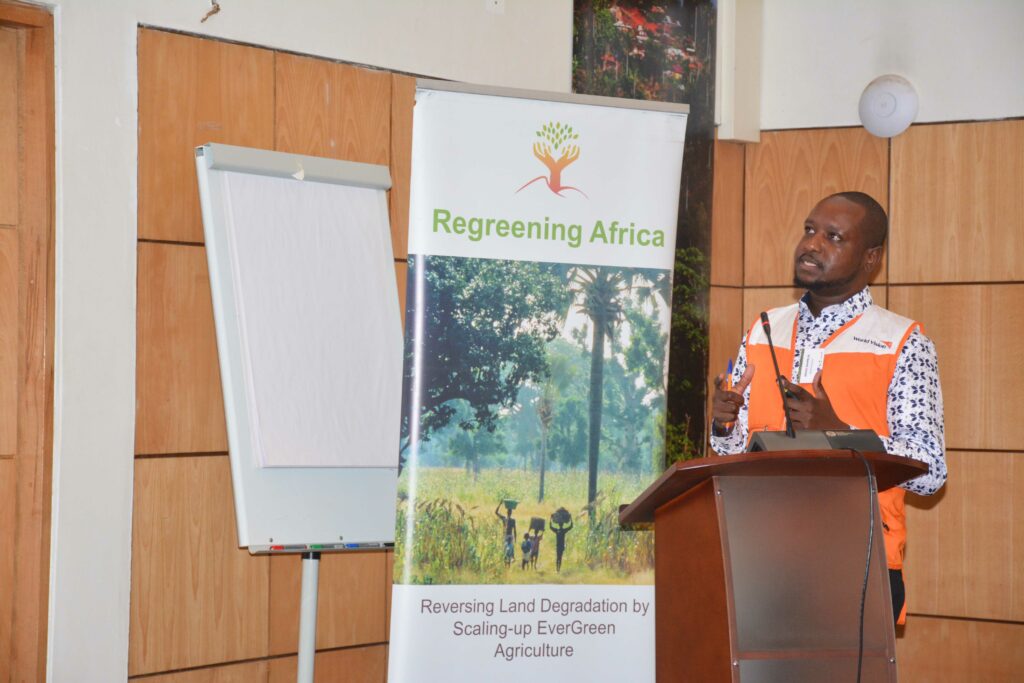
Brian Wambua, the Regreening Project Manager for World Vision Kenya gives a presentation at the workshop. Photo: Regreening Africa/Marion Aluoch
During the workshop, former acting National Director for World Vision Kenya and a representative from the Ministry of Environment and Forestry emphases the need for collaboration among private sector actors and government agencies to tackle climate change and meet national, regional and international restoration goals.
“Climate change and the achievements that we need to make cannot be accomplished by an individual or an organization. It is up to all of us—the private sector and government actors—to work together to increase forest cover,” says Geoffrey Kativa, former acting National Director for World Vision Kenya.
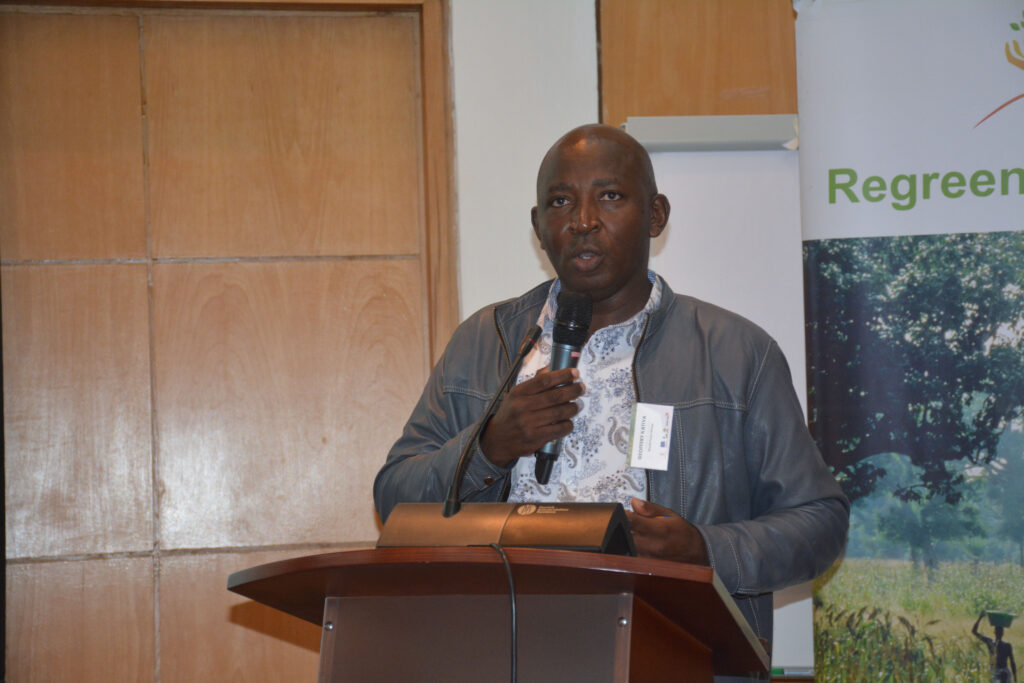
Geoffrey Kativa, former acting National Director for World Vision Kenya. Photo: Regreening Africa/Marion Aluoch
Stephen King’oo from the Ministry of Environment added that the government alone cannot increase tree cover from the current 12.1% by 2030 without the engagement of partners and stakeholders
“The Ministry of Environment’s mandate is to conduct, protect, and develop forests, as well as to ensure we have a clean environment, and this cannot be accomplished without the collaboration and engagement of partners and stakeholders,” Mr. King’oo said.
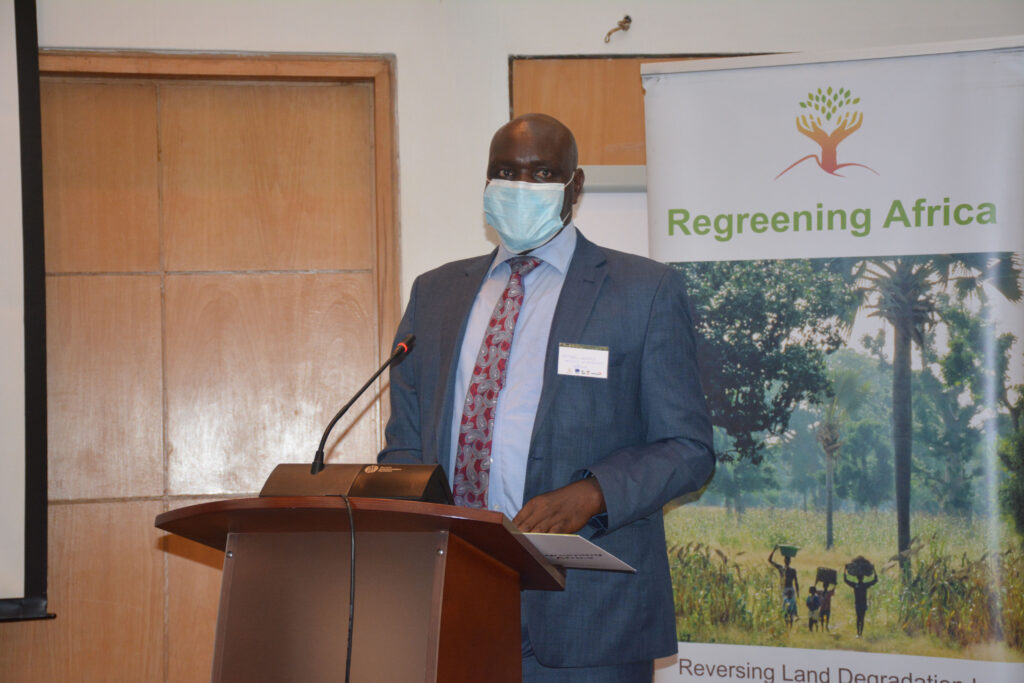
Stephen King’oo, representative from the Ministry of Environment and Forestry. Photo: Regreening Africa/Marion Aluoch
It was also noted that strong partnership linkages are a key driver to sustainable restoration. It is therefore critical that the technical working groups working within Kenya’s counties, foster strong partnerships and linkages to ensure that restoration efforts continue beyond the project timeline.
Central to the event was an interactive session on evidence and experience, where participants analysed and debated the current land restoration practices, policies, and scientific finding in Kenya’s land restoration efforts. The Regreening Africa app was used to monitor data in real-time, allowing for adjustments to strategies based on available scientific information
Another stimulating conversation focused on the Asset-Based Community Driven Approach (ABCD), which encourages communities and individuals to identify current assets and assess how those assets can be used to improve their lives and livelihoods. Assessing the economic cost and benefit of investment in sustainable land management though the Economics of Land Degradation (ELD) component highlighted the economic value of productive land to improve sustainable land management.
“The cost of agroforestry is felt by the individual farmer, but the value is for the entire society. Agroforestry has a higher economic value because the value to society is very large, but a lower financial value because the cost is not shared by the entire society,” explained ELD Ambassador Lutta Alpahyo.
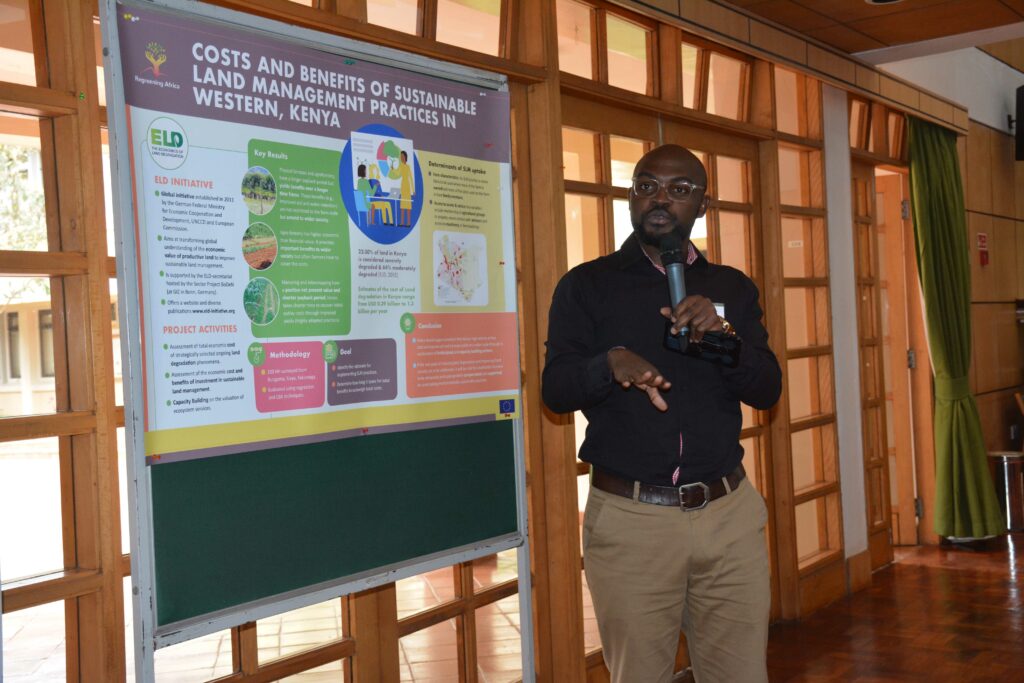
Economics of Land Degradation (ELD) Ambassador Lutta Alpahyo, shares insights on the costs and benefits of land management. Photo: Regreening Africa/Marion Aluoch
Lucy Ojijo highlighted the importance of mindset shifting in encouraging community uptake of sustainability projects and the need for technical capacity development to ensure long-term viability.
“Mindset shifting encourages community uptake by explaining to the local communities both the long- and short-term benefits of the project,” said Lucy Ojijo.
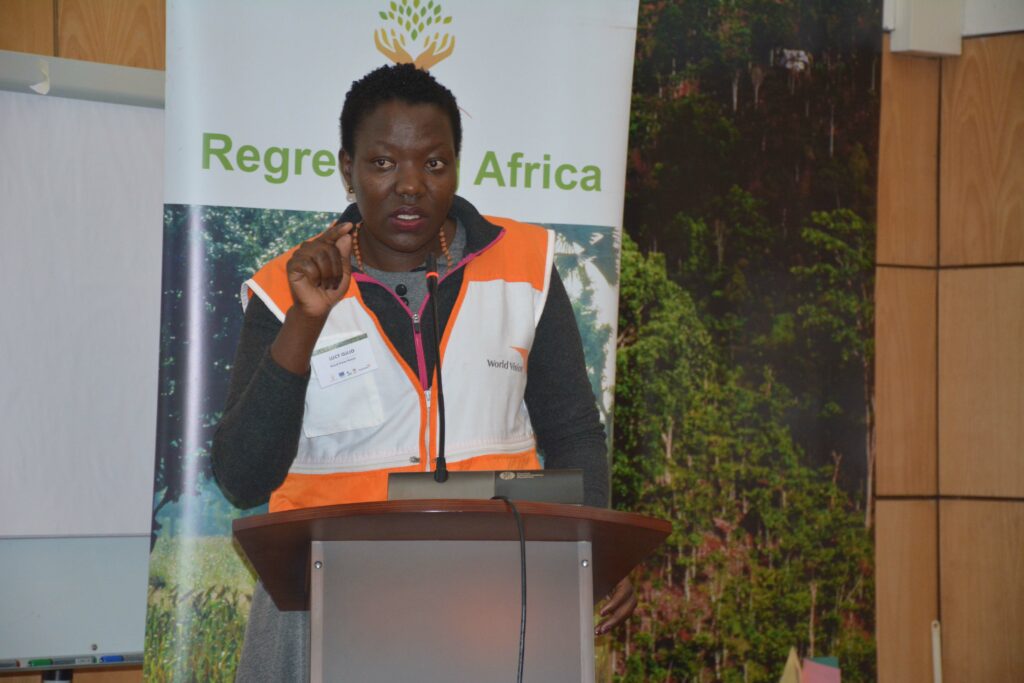
Lucy Ojijo, Project Officer, discusses the project’s sustainability in the communities. Photo: Regreening Africa/Marion Aluoch
The workshop concluded with participants reaffirming their commitment to land restoration and making commitments to create awareness, form partnerships, mobilise resources, develop policy frameworks and provide training.
The message is clear – strong partnerships and technical capacity development are crucial to sustainable land restoration efforts.
For more information on the workshop, including the workshop report and resources please follow this link.
This story was produced with the financial support of the European Union. Its contents are the sole responsibility of Regreening Africa and do not necessarily reflect the views of the European Union.

